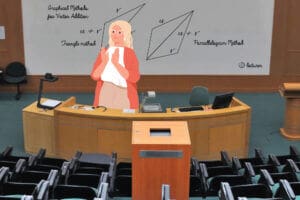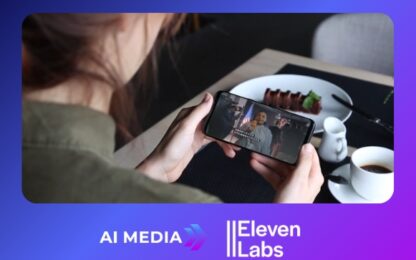
The Tricky Issue of Copyrighting Recorded Lectures
In today’s environment of remote learning, copyright and ownership of materials is coming into sharp focus.
The copyright policies of some US universities recently came under fire after teachers unearthed new language around ownership of lectures. The policies stated that if a teacher recorded their lectures using publicly available software, such as Skype or Google Hangouts, the teacher owns the copyright. However, if the teacher uses the university-provided software, Blackboard, the university retains the rights.
University teachers are concerned that if budget cuts eliminate their positions, schools could still offer the class to students using their previously recorded video lectures.
This could make some teachers reticent to release transcripts of their lectures. Transcripts are typically created and shared with students who need accessibility support, but if a teacher thought the transcript would either take their place or be used against them, they may have second thoughts.
How universities are now responding
Many schools, copyright experts and even publishers are now weighing in on the lecture copyright issue to ease concerns.
George Washington University passed resolution on intellectual property in August, clarifying that faculty members will maintain the same intellectual property rights that they had for their course materials that they had before the COVID-19 pandemic. They will review policies again in the Spring of 2021.
The University of California Santa Cruz also issued a clarification statement that read, “Unless a faculty member used exceptional University resources to create course materials (which would generally only be done under a specific, signed agreement), faculty own the copyrights in the course materials they create. That means that only the faculty member, and anyone to whom the faculty member has granted permission, may reproduce, distribute or display (post/upload) course materials.”
Audio and video content
There are other copyright issues teachers are thinking about as well. The difference between playing audio or video content online versus using in an in-person class can be more complex.
In Minnesota, playing audio or video content in an in-person class session is 100% legal under a provision of copyright law called the ‘Classroom Use Exemption’. However, it does not apply to online classes, and the University of Minnesota is advising professors to limit audio and video to brief clips.
Content from books, textbooks and assignments
Harvard University copyright adviser Kyle Courtney said he received questions from professors about posting portions of textbooks or other purchased materials online.
“That was a huge deal, because no one had their books,” Courtney said.
It’s not just universities, grade school teachers often read books and poems aloud to classroom students, and copyright law has an exemption for face-to-face teaching that doesn’t apply to the distance learning that schools are creating during the Covid-19 pandemic.
Publishers, including Macmillan Children’s Publishing Group and HarperCollins Children’s Books, have said teachers may post videos reading books to their students, under certain conditions.
For example, HarperCollins says, “Recorded videos of readings may be uploaded to YouTube as long as they are marked ‘Unlisted,’ meaning that it doesn’t appear on any public YouTube pages. Scholastic requested teachers read a disclaimer that they have permission from Scholastic, and delete the videos within a certain a timeframe.
Universities are also taking this moment to remind professors that students own the copyright to the work they submit to professors.
Support for teachers
A group of copyright specialists at colleges, universities and other organizations wrote a statement on fair use about how copyright law applies to the many facets of remote teaching with the aim of providing clarify and allaying fears. The group also put together a list of video and other content that publishers have made available for free—called ‘Vendor Love In The Time Of Covid’.
“We want to make copyright the least of your concerns,” Harvard’s Courtney said. “Be worried about your students, their health, their welfare, because that’s most important.”
Visit Ai-Media’s website to find out more about our range of captioning, translation and transcription services.


